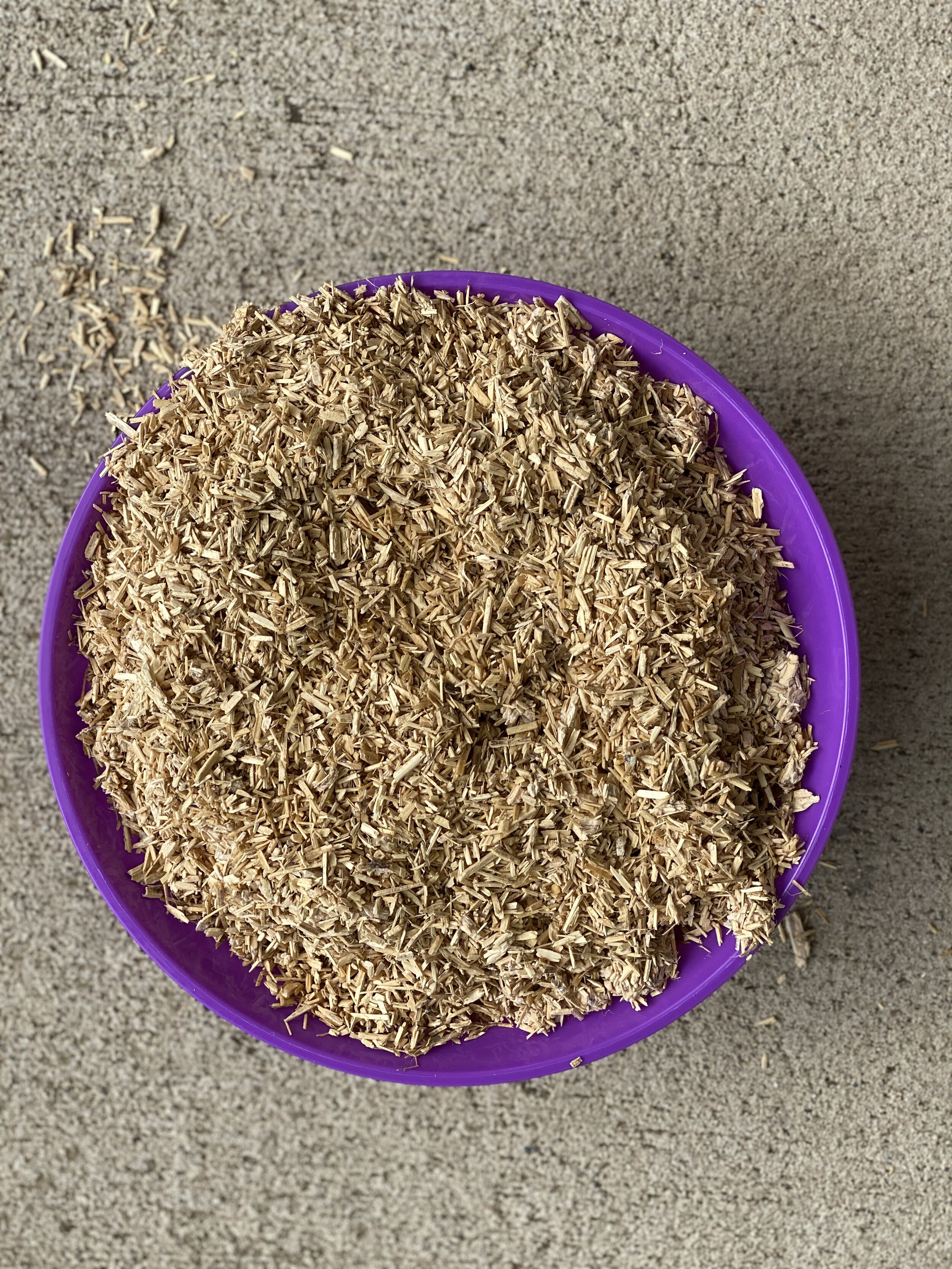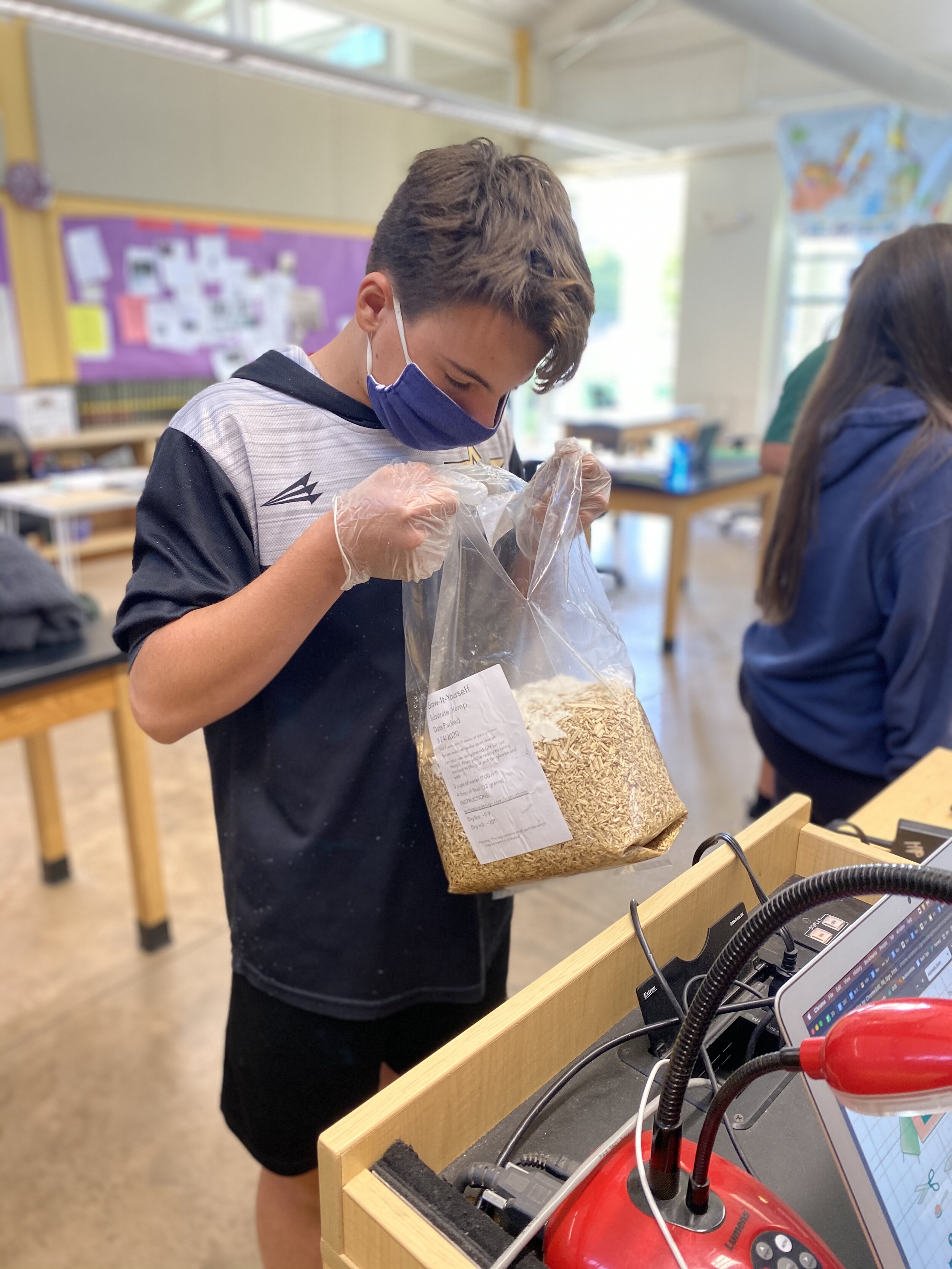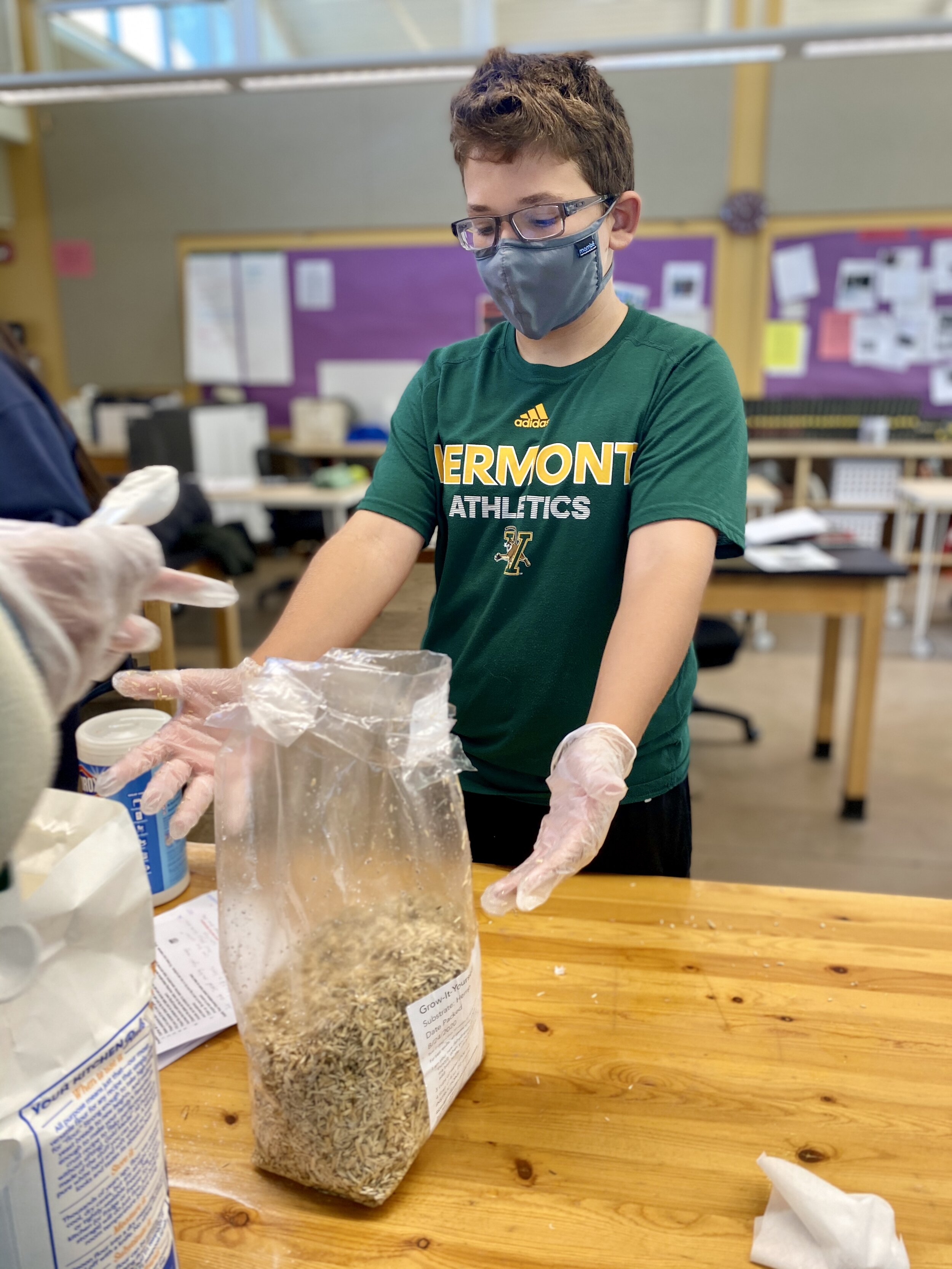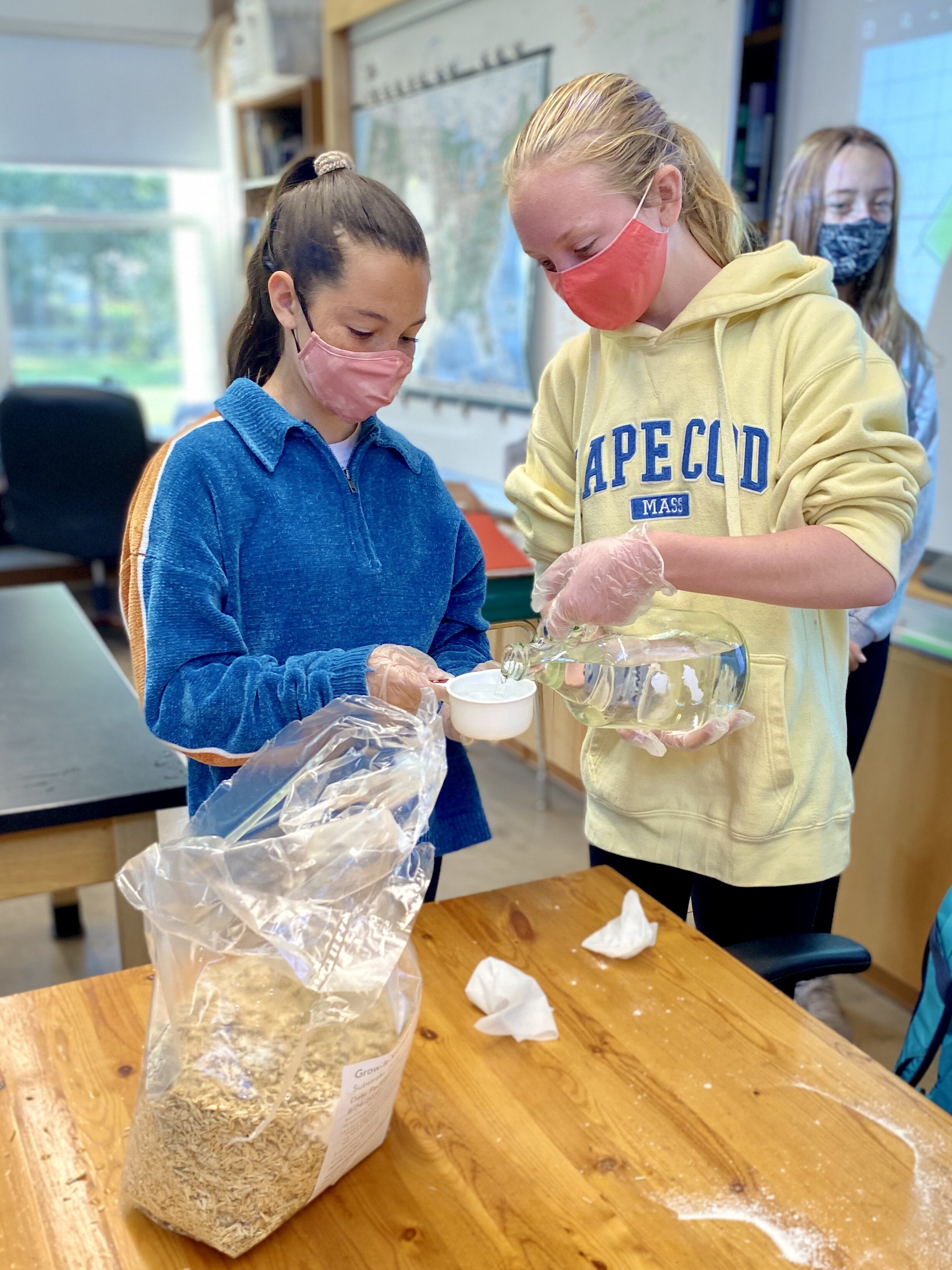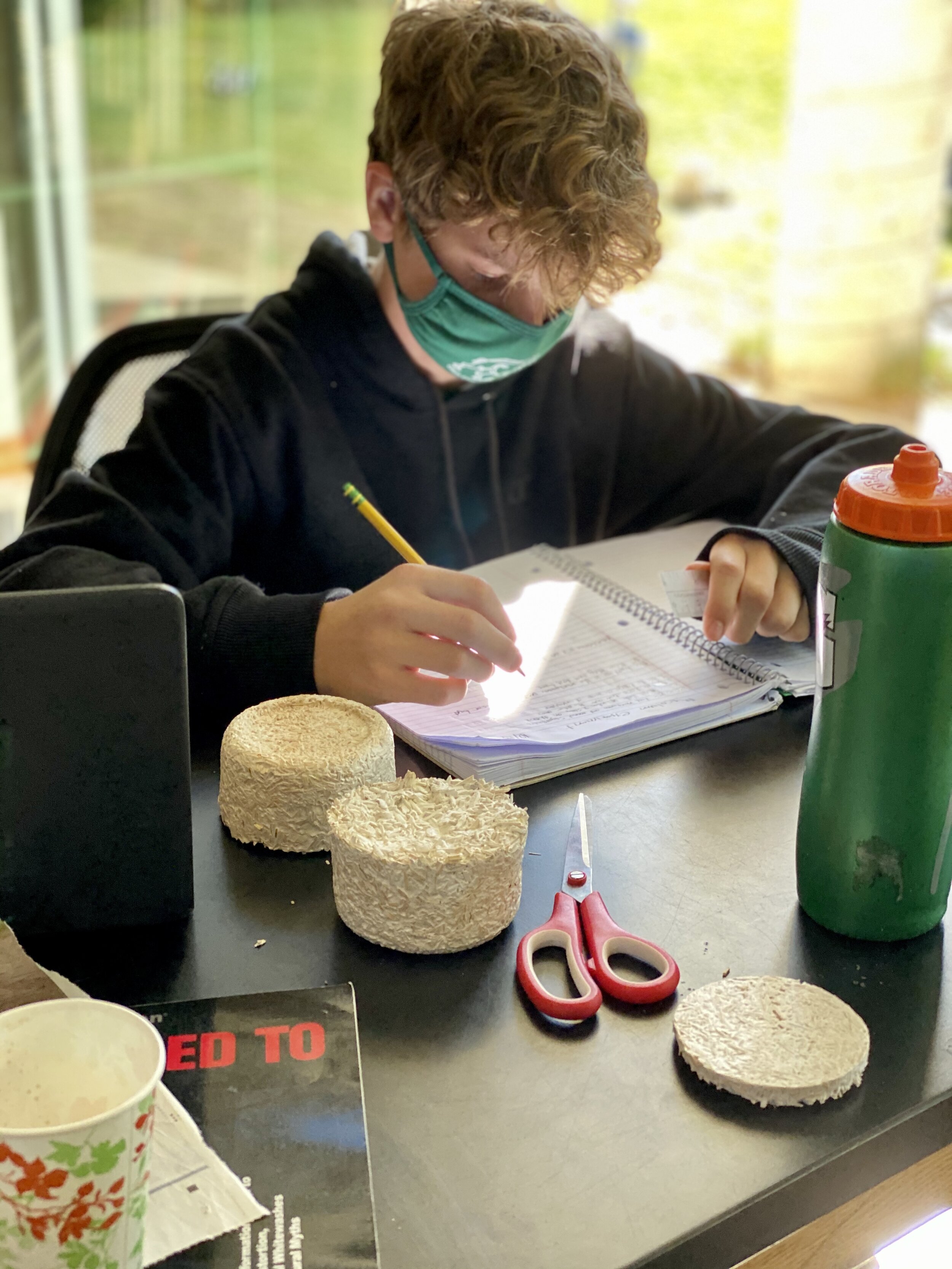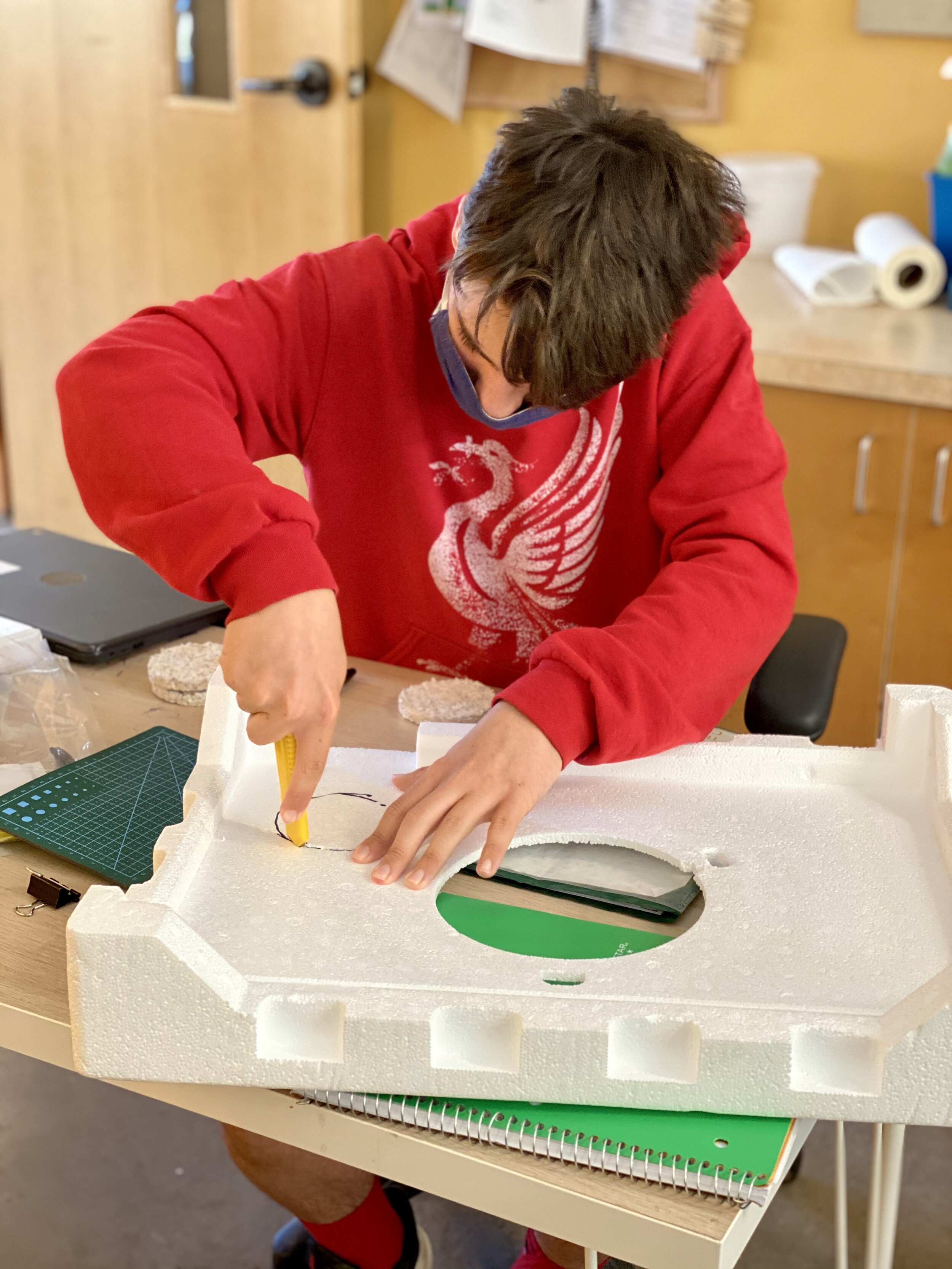Weighing the pros and cons of naturally-derived mycelium styrofoam versus traditional styrofoam.
Students in Alex Levin’s eighth grade science class set out to uncover the pros and cons of naturally-derived mycelium styrofoam versus those of traditional styrofoam. They started by mixing and fermenting their own “mushroom” styrofoam - pouring it into various shapes and molds for different purposes - then put their foam through a variety of self-designed tests to see how its properties weighed up against traditional styrofoam.
Student Conclusions:
COFFEE CUP DURABILITY: Will traditional styrofoam or mycelium provide a more useful coffee cup?
The branded cup made of traditional styrofoam material ended up providing a better cup, however, the mycelium container was also able to properly perform the task of keeping the coffee warm. However, if I were to make a more realistic experiment, I would make some sort of barrier in the mycelium cup between the liquid and the organic material, so that they would not get mixed (I do not know how edible the mycelium material is).SOUND INSULATION: Will regular or mycelium styrofoam insulate sound better?
With our experiment, we hoped to explore the sound insulation properties of mycelium and regular styrofoam. To do this, there are a few simple steps we had to follow. First, we found a song we wanted to play on a phone. Second, we put the volume all the way up on the phone. Next, we made a box for the phone out of both types of styrofoam. So after that, all we had to do was start the song and record the insulation levels on another phone using the Google Science Journal app. We discovered that the two types of styrofoams insulate sound at a fairly similar level. I would definitely be happy to use and even recommend the mycelium styrofoam again.DURABILITY: If companies switch to mycelium styrofoam and I order something from them online, will my package be protected or not?
To test this, I wrapped each styrofoam around an egg and dropped them from various heights, then I checked to see which egg cracked and which one didn't. The traditional styrofoam protected the egg better than the mycelium styrofoam. In the end, I still would recommend the mycelium styrofoam over the traditional because it's better for the environment, and although the mycelium-protected egg cracked first, both took multiple drops before cracking. Overall, they are both fairly durable but only one is environmentally friendly.PROTECTION: How does the protection provided from mushroom styrofoam packing compare to traditional styrofoam?
In my experiment, I was testing out how well the two styrofoams could protect eggs. I decided to put an egg in a box and surround it with packing peanuts to see what would happen. I used an ice cube tray to make my mycelium packing peanuts. Both of the styrofoams worked the same, and I got the same results for both of my experiments. I would suggest using the mycelium styrofoam because it works the same as the normal styrofoam, and it's better for the environment. - EmilyTEMPERATURE: Which styrofoam will hold up to heat better?
I was hoping to explore at what temperature each Styrofoam would dissolve at. But since I couldn't get the water hotter than boiling I ended up just observing what happened to each Styrofoam when it boiled for 25 minutes. The results of this experiment were that almost nothing happened to the normal Styrofoam, but a lot happened to the mushroom Styrofoam. For example, bad smell, turning the water yellow, and getting very soggy. I would definitely recommend the normal Styrofoam for using but the mushroom stuff is way better for the environment.FLEXIBILITY: Which type of styrofoam is more flexible?
I put the same amount of weight on both types of styrofoam and measured how much each type moved after five minutes. The Regular Styrofoam moved more than the Mushroom Styrofoam so the Regular Styrofoam was more flexible. In terms of this property, I determined that the Regular Styrofoam is superior.



